Power Outage in Sudan Deepens Crisis as RSF Drone Strikes Hit Strategic Sites
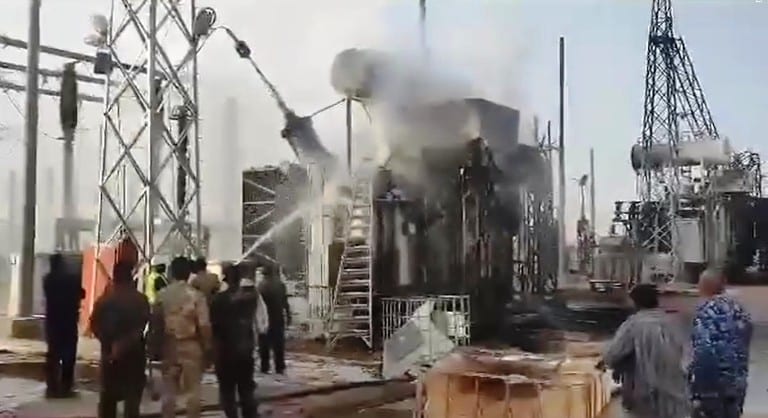
Sudan’s fragile infrastructure and worsening humanitarian emergency took a new blow this week after drone strikes by the paramilitary Rapid Support Forces (RSF) knocked out electricity in parts of Khartoum state, intensifying the war’s impact beyond the battlefield.
According to eyewitness accounts, RSF drones struck the Wadi Seidna military area and the Al-Markhiyat electricity substation in Omdurman, setting transformers ablaze and plunging large parts of the city into darkness. Footage circulating on social media showed flames and explosions at the substation, underscoring the vulnerability of Sudan’s critical infrastructure to targeted attacks.
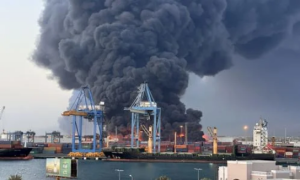
The strikes extended to Khartoum’s Al-Kalakla district, home to a military factory and Al-Jaili, site of Sudan’s main oil refinery, facilities central to both the country’s defense and economic survival.
No casualties were reported, but the damage is significant. Beyond the immediate blackout, the attacks expose the growing risks to Sudan’s energy grid, its industrial base, and the broader economy, already strained by 17 months of civil conflict.
The latest escalation illustrates how Sudan’s war is no longer confined to military frontlines. By targeting energy and industrial infrastructure, the RSF is striking at the arteries of daily life, crippling public services and deepening civilian suffering.
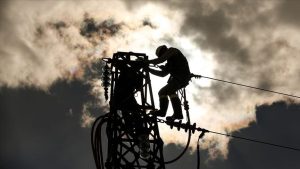
Omdurman’s blackout is not just an inconvenience, it affects hospitals already struggling with shortages, schools that rely on electricity for basic operations, and small businesses that form the backbone of local economies. With power cuts disrupting refrigeration, communications, and water pumping systems, humanitarian groups warn of cascading effects, especially in a city hosting large numbers of displaced families.
The attack also raised alarms over Sudan’s oil sector. The Al-Jaili refinery provides most of the country’s fuel. Any sustained disruption could halt electricity generation, transport, and relief operations nationwide.
The strikes also highlight a less-discussed dimension of Sudan’s war: its impact on business continuity and property markets. Omdurman and Khartoum, once commercial hubs, are seeing waves of business closures, factory shutdowns, and property destruction.
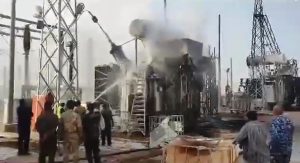
Real estate services are already disrupted by mass displacement; and now, they face additional uncertainty as infrastructure collapses. Government ministries that once operated from Khartoum have been scattered across makeshift offices, while private companies are relocating or shuttering entirely. For ordinary Sudanese, property once seen as a family’s lifeline is now either abandoned, occupied, or reduced to rubble.
These dynamics are eroding one of the last safety nets for urban households: the ability to rely on property assets to weather crises. The blackout is thus more than a technical breakdown—it deepens economic displacement in a country where 15 million people are already uprooted.
Sudan is already facing what the United Nations has called one of the world’s worst humanitarian crises. The war has killed more than 20,000 people, displaced 15 million, and left millions more without reliable access to food, medicine, or shelter. Independent researchers in the U.S. estimate the death toll could be as high as 130,000, reflecting widespread undercounting in remote conflict zones.
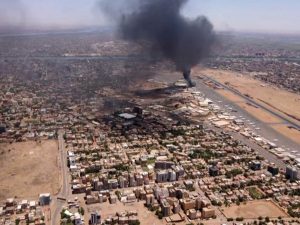
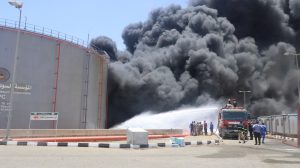
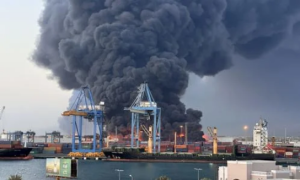
The blackout in Omdurman risks derailing aid deliveries. Relief agencies rely on electricity for storage of medical supplies and coordination of operations. Hospitals in Khartoum, which have been bombed, looted, or abandoned throughout the war, are particularly vulnerable to energy disruptions. Aid workers warn that prolonged outages could accelerate disease outbreaks and malnutrition.
El-Fasher, the capital of North Darfur, has already become the epicenter of humanitarian collapse. Fighting there has cut off relief corridors for the entire Darfur region, despite international warnings that the city serves as a vital hub for millions.
The RSF’s strikes on substations and refineries are part of a broader strategy to weaken the Sudanese army by targeting its logistical backbone. But analysts note that these attacks also send a political message: the RSF wants to demonstrate its ability to paralyze national infrastructure, undermining confidence in the government’s ability to govern.
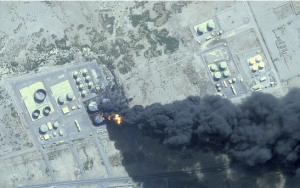
For the Sudanese army, meanwhile, protecting key installations has become as important as holding territory. In recent days, it escalated operations in Kordofan in a bid to lift the RSF siege of El-Fasher, underscoring how military priorities are increasingly tied to safeguarding humanitarian access.
For Sudanese civilians, the blackout is both a literal and symbolic reminder of the country’s collapse. Darkness now falls not just because of the sun setting but because of a state unable to keep the lights on. Families are cooking by candlelight, students are unable to study, and entire neighborhoods are relying on diesel generators, if they can afford the fuel.
Socially, these repeated outages reinforce feelings of abandonment. “When the power goes, it feels like the government has left us behind,” one resident told local media.
The blackout also fuels migration. As living conditions worsen in Khartoum, more families are joining the exodus to rural areas or across borders, further swelling refugee populations in neighboring Chad, South Sudan, and Egypt.
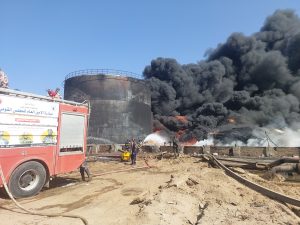
The war between the RSF and the Sudanese army, which began in April 2023, has transformed from a battle for power into a slow destruction of Sudan’s social and economic fabric. By striking the power grid, the RSF has underlined that this is not only a fight over cities and soldiers but also over the basic infrastructure that sustains daily life.
What emerges is a grim pattern: every military move reverberates into civilian suffering, eroding not only Sudan’s present but also its chances of rebuilding. Without electricity, oil production, functioning hospitals, or stable real estate, the cost of war is measured not just in lives lost but in the hollowing out of a nation’s future.






